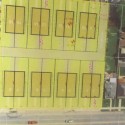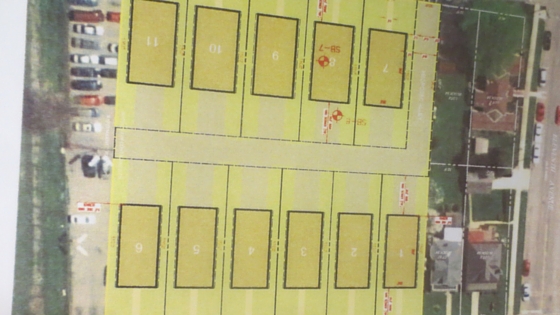Last week there was a zoning hearing involving the continued effort to bring a convenience store with gas pumps to the Moore property at 12th and Fayette. One central argument involves an argument that the property, as zoned, would not be an attractive to residential developers, thus commercial development should be permitted. To catch you up:
From the Times Herald coverage of the February 12, 2015 zoning hearing:
Two alternate construction plans for either 16 semi-detached condos or 11 single-family homes were developed for the site to compare it financially to a convenience store plan.
“The redevelopment costs will exceed the revenues generated by selling the redeveloped property,” Coyle said, “and as a result, it is not economically feasible to develop it for either semi-detached single homes or detached single homes.”
Coyle projected the costs of building the 16 condos or the 11 single family homes and selling them with a 15 percent developer’s overhead and profit and compared that monetary figure with the projected sales revenue of both options.
“It is not economically feasible to redevelop the property in accordance with the current R-O residential office zoning requirements because the revenues from the sale of either improved lots or developed homes are insufficient to cover the costs of acquisition of the subject land and the costs of development of the property,” Coyle said.
From the Times Herald coverage of the July 22, 2015 zoning hearing:
Under previous questioning by attorney Ross Weiss, representing PPF, Van Rieker, a land planner, said alternative plans for single homes or town homes were not economically feasible, even though they complied with the existing zoning. Under cross-examination Wednesday from attorney Steven Pollock, representing the neighbors, Van Rieker reaffirmed his position that the convenience store is an appropriate project and would have limited impact on the residential character of the neighborhood.
So what the argument from Provo Pineville, the convenience store/gas pump developer, is that building residential homes on the property is not economically viable, thus its proposed use as a convenience store and gas pumps should be allowed. Basically there is a hardship on selling the property for residential purposes and thus a commercial use should be permitted.
In this past week’s zoning hearing, the group against the proposed convenience store and gas pumps, called its first witness to challenge the idea that the property was not desirable as a residential development. The witness, local developer Chuck Borkowski, compared what he projected for the costs to redevelop the property into residential units vs. what Coyle, the expert witness from Provco Pineville, projected in his study. Borkowski said his projections, which came in lower, were based on his experience building similar homes in Conshohocken, his ability to complete large portions of the work through his own company, and relationships with vendors and subcontractors. His testimony was that the property was viable for residential development and that he would absolutely make an offer to purchase it at $1,631,617 (which was the price the Coyle study used as the property price).
We are told there is an effort to bring these hearings to a conclusion by the end of the year. There is another hearing on the Tuesday before Thanksgiving. Stay tuned.
The images in this article are of the residential developments outlined in the Coyle study. The top one is of twins and the other single homes.


